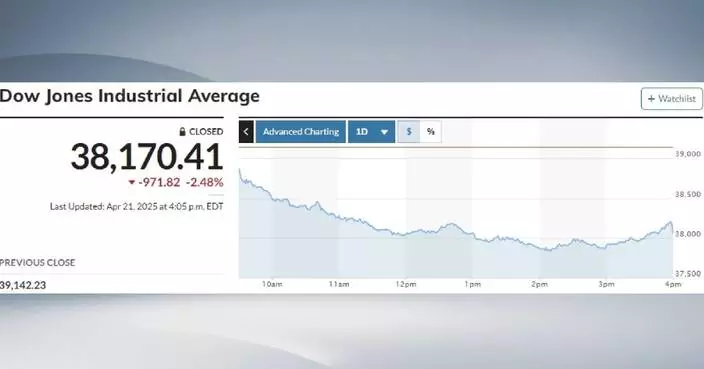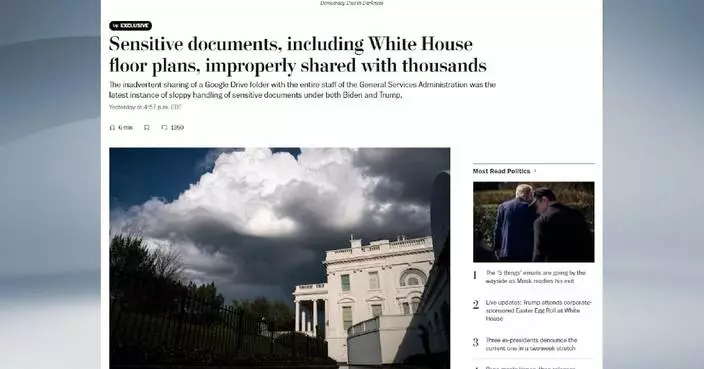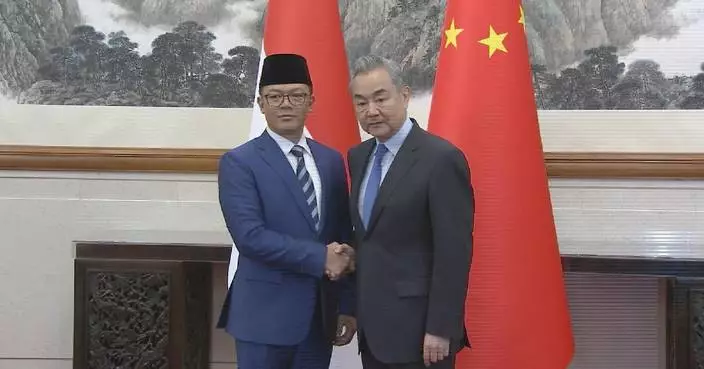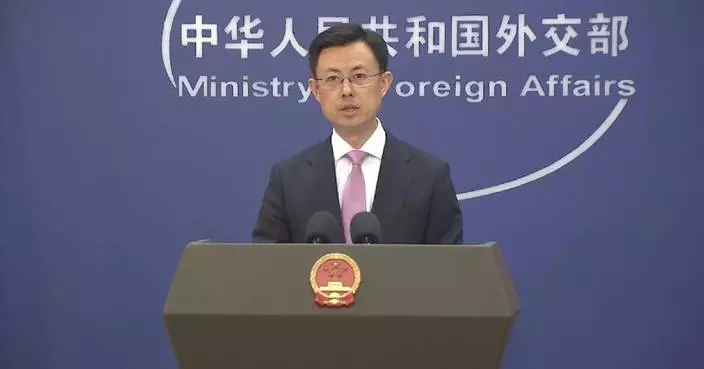The United States' sweeping "reciprocal tariffs" policy is poised to trigger inflation, job losses, a weakening dollar, and potentially even a recession, according to David Firestein, president and CEO of the George H. W. Bush Foundation for U.S.-China Relations.
U.S. President Donald Trump signed an executive order on "reciprocal tariffs," imposing a 10-percent "minimum baseline tariff" on all imported goods and higher rates on certain trading partners. The order, signed last week on Wednesday, took effect on Saturday.
Following the decision, U.S. stocks plummeted in the subsequent days.
Firestein emphasized that the market's reaction reveals how Trump's actions undermine the U.S. economy.
"We've already seen in two business days, Thursday and Friday, after he announced on Wednesday, the United States stock markets lost 6 trillion dollars, 6 trillion dollars in wealth. I don't think we've ever seen anything like that in history. I think you'd have to go back to the Great Depression and the crash of 1929 to see anything on this type of scale, and even that may not be quite the same. This is going to go down as one of the most egregious, self-inflicted wounds and unforced errors that we have ever made as a nation in any area of trade policy or economic policy," said Firestein.
He went on to outline several potential consequences of Trump's "reciprocal tariffs" policy.
"It's going to do several things. Number one, it's obviously going to raise prices and contribute mightily to inflation. Number two, it's going to ultimately result in net job loss, because American producers will be having to pay more for the inputs for their final products. That means that they'll have to raise their prices on the products. That means fewer people will buy the products and that means that the factories will have to lay people off. And of course, it's leading to the weakening of the dollar and according to many economists, a much greater likelihood of a recession," Firestein emphasized.

Expert warns Trump's "reciprocal tariffs" could destabilize US economy



















































